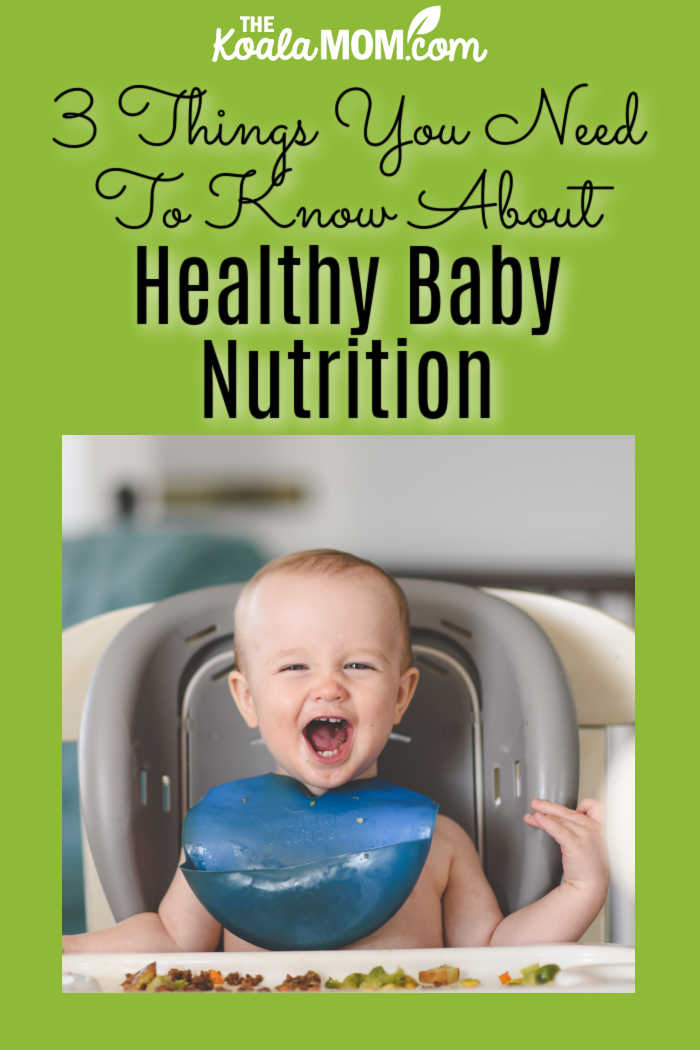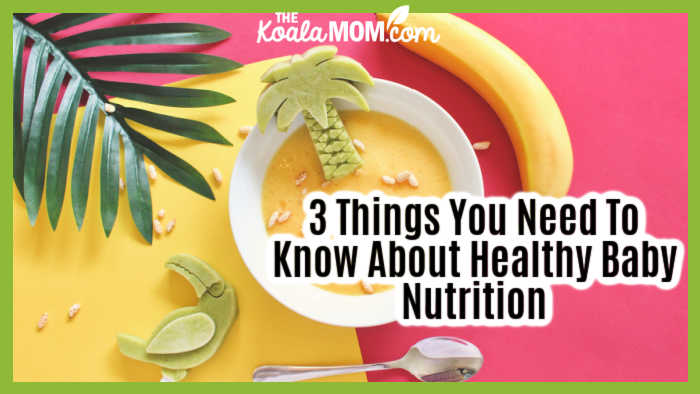As a new parent, you want the best for your little bundle of joy. And that starts with their nutrition. But with so much conflicting information out there, it can be overwhelming to know where to start. That’s why we’ve put together this guide of three essential things you need to know about healthy baby nutrition.
From when and how to introduce solid foods to what nutrients your baby needs most, we’ve got you covered. So grab a cup of coffee (or tea!) and read on for everything you need to know about nourishing your growing baby!

Building a Healthy Diet for Your Baby
A healthy diet for your baby starts with breast milk or infant formula. From there, you can start introducing solid foods at around 6 months old. It’s important to choose nutrient-rich foods that will help your baby grow and develop.
You may be wondering how much food your baby needs or what kinds of foods they should eat. The amount of food a baby needs depends on their age, weight, and activity level. As a general rule, babies need about 2 to 3 ounces of breast milk or infant formula per pound of body weight each day. To quote the folks from MommyFormula.com, this way you can be sure your baby is getting the nutrients they need when they need them.
When it comes to solid foods, start with small amounts and increase gradually as your baby gets older. Pureed or mashed fruits and vegetables are great for baby’s first food. You can then move on to small pieces of soft-cooked meat, poultry, or fish, learning how to freeze fish properly to ensure freshness. Avoid giving your baby honey, unpasteurized dairy products, raw eggs, or certain types of fish due to the risk of food poisoning.
It’s also important to introduce new foods one at a time in case your baby has an allergy. Watch for signs of allergies such as rash, hives, difficulty breathing, vomiting, or diarrhea, and talk to your doctor if you have any concerns.
Nutrients Necessary for Healthy Infant Development
A healthy diet for a growing infant requires several key nutrients. These nutrients aid in development and growth, and support the immune system. Some of the most important nutrients for infants include:
Protein: Protein is essential for the growth and repair of tissues. It is also necessary for the production of enzymes and hormones. Good sources of protein for infants include meat, poultry, fish, eggs, dairy products, legumes, and nuts.
Fat: Fat is a concentrated source of energy and helps to absorb vitamins A, D, E, and K. Infants need fat for brain development and to produce myelin, which insulates nerves. Good sources of fat for infants include breast milk, formula, butter, oils, avocados, and nut butters.
Carbohydrates: Carbohydrates are the body’s main source of energy. They are also necessary for proper bowel function. Good sources of carbohydrates for infants include breast milk, formula, fruits, vegetables, grains (such as oatmeal and rice), and potatoes.
Vitamins: Vitamins are essential for numerous functions in the body including metabolism, immunity, and cell growth and repair. Vitamins A, C, D3 (or cholecalciferol), E (or alpha-tocopherol), B6 (or pyridoxine), B12 (or cyanocobalamin), niacin (or nicotinic acid), folic acid (or folate), and thiamin (or vitamin B1) are particularly important for infants. Good sources of these vitamins include milk, formula, eggs, liver, fortified cereals, fruits and vegetables, legumes, nuts, and seeds.
Understanding Food Allergies and Intolerances
When it comes to your baby’s nutrition, it’s important to be aware of the difference between food allergies and intolerances. Both can cause reactions in your baby, but they are not the same thing.
A food allergy is a reaction of the immune system to a particular food protein. When your baby eats something that they are allergic to, their body views it as a foreign invader and will produce antibodies to fight it off. This can lead to symptoms such as vomiting, diarrhea, hives, or difficulty breathing. If your baby has a severe food allergy, it can even be life-threatening.
A food intolerance is an adverse reaction to food that does not involve the immune system. It is usually much milder than a food allergy and may cause symptoms such as gas, bloating, or abdominal pain. Unlike with an allergy, an intolerance typically does not get worse with each exposure and rarely leads to serious health consequences.
If you think your baby may have a food allergy or intolerance, talk to their doctor. They can perform tests to confirm the diagnosis and help you develop a plan to keep your baby safe and healthy.

To sum up, it is important to remember that healthy baby nutrition is essential for a child’s overall well-being and development. It is also crucial to understand what foods should be included in their diet, how much they should eat, and when they should eat.
Furthermore, parents must make sure that the food provided to their babies is safe and of good quality. Finally, it’s always best to consult your doctor before making any changes in your baby’s dietary habits. With this information at hand, you can ensure that your little one enjoys a nutritious journey into adulthood!

No Responses Yet